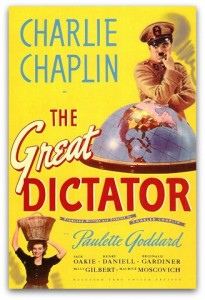Sony pulled The Interview from a major theatrical release after hackers threatened to bomb any theater that screened it. While it may very well be Hollywood’s most controversial film of all time, it’s definitely not the first.
The Great Dictator (1940)

The Last Temptation of Christ (1988)
This controversial film from director Martin Scorsese was based on the even more controversial book by author Nikos Kazantzakis. The film focuses on Jesus Christ and theorizes that the man at the center of one of the world’s biggest religions was riddled with fear and doubt, and contains a lengthy sequence supposing what it would have been like for Christ if, instead of dying on the cross, he married Mary Magdalene. Christian groups were outraged. Protestors at a screening in Paris hurled Molotov cocktails at the audience and injured 13 viewers. Many theater chains in the U.S. decided not to carry the film and it was banned in several countries for years afterward. Nevertheless, The Last Temptation of Christ earned Scorsese an Academy Award nomination for Best Director.
Dogma (1999)
Director Kevin Smith’s raunchy comedy about two fallen angels trying to exploit a loophole in Catholic dogma in order to sneak back into heaven also received tons of flack from religious groups. The Catholic League denounced the film as “blasphemy” and Smith—a practicing Catholic—received death threats. Protests outside of cinemas failed to prevent Dogma from becoming a box office hit. At one point, Smith himself even cheekily showed up at a demonstration in his native state of New Jersey to chat with protesters.







